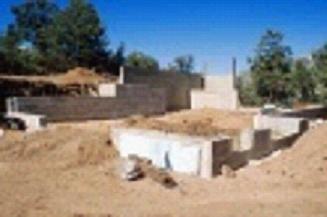Home Owners Warranty

New Jersey’s Home Owners Warranty and Registration Program
New home building is a large part of New Jersey’s construction industry. Construction attorneys from our firm help builders navigate New Jerseys Home Owners Warranty and Registration Program.
Overview of the Home Owners Warranty
In 1977 New Jersey enacted the New Home Warranty and Builders’ Registration Act. The Act provided homeowners with legally mandated warranty coverage for their newly constructed homes, and required that home builders register with the State to ensure the quality of New Jersey’s homebuilding industry. The main requirements elements of the Act are the registration and warranty requirements.
The New Home Warranty
The New Home Warranty and Builders’ Registration Act has two elements, the builder’s repair requirement and the warranty policy. It provides ten year coverage for defects in workmanship, materials and systems in a new home.
First, it makes the builder the new home’s warrantor. If there are covered defects in workmanship, materials or systems, the builder must repair them.
Second, the builder is required to pay for a warranty policy to cover the repairs if the builder does not perform them itself. If it is found that the builder should have made the repairs but didn’t, the New Home Warranty Security Fund will fund the repairs.
The homebuilder must give the owner a full copy of the warranty coverage and explanation of the claims procedures at closing. The local construction official will not issue a certificate of occupancy (“CO”) unless the builder presents proof that the new home is covered by a homeowners warranty.
The New Home Warranty Coverage
The builder’s liability is limited to the price of the first arm’s length sale, if there was one, or if not the new home’s fair market value.
The scope of coverage changes on a declining scale as time elapses after completion.
- During the first year – coverage includes major structural defects, defective workmanship, systems, materials, electrical, plumbing and mechanical systems, appliances, fixtures, and equipment.
- During the first two years – coverage includes electrical, plumbing, mechanical, systems and major structural defects.
- During the third through tenth years – coverage includes major structural defects only.
New home builders may elect to use the State Warranty Plan, or to use private programs which are required by the Act to provide the same coverage. Fees in the State program are based on the history of the builder’s warranty enrollment and dispute settlement records.
Claims Resolution Process
Private plans are required to provide claims, complaint, and payment procedures, which must provide for an attempt at informal resolution. The owner must give the builder notice of any claim. The plan must provide for either conciliation and/or arbitration for warranty claims, and expressly advise of applicable time limits. The owner can reject or accept the conciliation decision and can appeal.
The procedures for the state plan are more detailed. Absent emergency, no claim can be made until 120 days after the warranty period commences. The homeowner must provide the builder with a written punch list. If the defects are covered, the builder must inspect repair, replace or pay for the defect to be repaired within 30 days from the notice of the claim. If the defect causes the owner to be unable to occupy the home, the builder must pay for housing expenses.
If the defect is not corrected within 30 days, the homeowner can then file a claim. The first step in the process is conciliation, where a neutral third party meets with the owner and builder and attempts to resolve their dispute. If anything remains unresolved and the parties agree, the conciliator can arbitrate the matter and render a binding non-monetary decision. If they do not agree, a staff member of the Bureau of Homeowner Protection, New Home Warranty Program will conduct a hearing and render a binding decision regarding the defects. The decision can be appealed within 15 days for an administrative hearing in the New Jersey Office of Administrative Law.
If the home builder is found responsible, but fails to repair or replace defects as directed, the State Plan will pay for remedying the defects.
The program will then pursue the builder to recoup its costs, and may also pursue revocation or suspension of the builder’s registration.
Homebuilders Registration Requirement
The Act requires that New Jersey homebuilders register with the New Jersey Department of Community Affairs before they can begin constructing new homes. The scope is quite wide: builders of owner-occupied new homes must register. This includes not only builders of single family homes, but also townhouses, multi-family homes, condos, factory-built and modular homes.
Builders must file an application, pay an application fee, and provide their business formation documents. Once approved, the builder will receive a registration card which it must show in order to obtain permits. The registration is valid for two years, before the next registration is required.
A homebuilder’s fraud, application misrepresentation or “substantial” violations of New Jersey’s Uniform Construction Code can cause its registration to be denied, suspended or revoked. Likewise a builder’s registration can be suspended or denied if it fails to enroll or provide the required warranty. It can be suspended or denied if it fails to correct defects for which it has been found responsible, or if it failed to participate in the dispute resolution process.
Contact Us
We are experienced construction attorneys who have been representing builders for decades. Please call (973) 890-0004 or e-mail us to set up a consultation.

